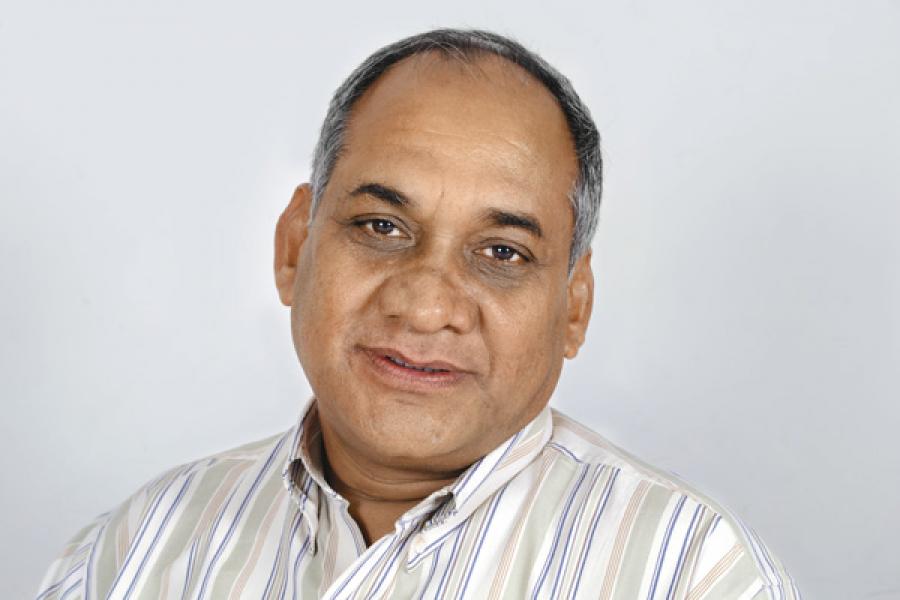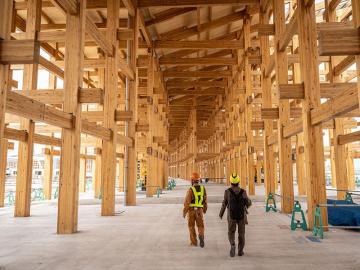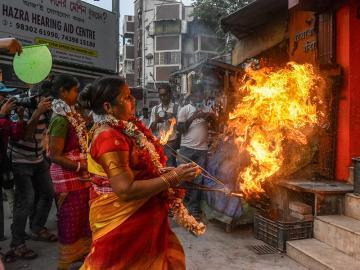
Mukesh Kumar: "We Don't Want a Repeat of Niyamgiri"
Mukesh Kumar, head of Vedanta Aluminium's Orissa operations, talks to Forbes India about losing the battle with the Dongaria Konds
Mukesh Kumar
Age: 48 years
Profile: Chief Operating Officer, Vedanta Aluminium Limited, Lanjigarh
Education: B.Tech, Punjab Engineering College, Chandigarh. M.Tech, Doctoral Studies - Indian Institute of Technology, Delhi
Career: Three decades in the engineering and metals industries. Before joining the Vedanta Group, he was COO, Engineers India Ltd and head of its business unit in the Middle East
Interests: Yoga and Ayurveda
We have suffered for three years. Already Rs. 8,000 crore has been invested in the area. Now it will take us another two or three years to start a mining project.
The environment ministry revoked the clearance to your bauxite mining plan in Orissa based on the N.C. Saxena report. What has been the impact?
As of now, the project is going on as it is. Let me make one thing clear. We are not anywhere in the picture. The mines do not belong to us but to the Orissa Mining Corporation (OMC). The proposal to mine was submitted by them. Our interest is that we are having an agreement with OMC to source 150 million tonnes of bauxite. The real dispute is between the state and the Centre.
But the Supreme Court ruling in 2008 that approved the mining project was directly concerned with you.
The fact is that the Supreme Court ruling had cleared the mining project. This is the first time in the history of the Ministry of Environment and Forests that a project’s clearance has been revoked after clearing the first phase [of environmental clearance]. After the Supreme Court cleared the case, no one can take up the issue again except for the President of India. So I don’t know why things have changed now.
Do you think that the issue has become political, especially after Rahul Gandhi aired his concerns about tribal rights?
It is not right for me to comment on this. The project is economically and physically viable. If one traces back, it was demanded by the Congress party on November 28, 1996, in the Parliament. It had said that the bauxite deposit in Orissa should be developed. That was the growth vision for Kalahandi. Now I don’t know what has happened suddenly.
But the N.C. Saxena Committee had cited violation of Forests Rights Act by Vedanta, including that the consent of the Dongaria Kond tribe was not taken.
That is wrong. In fact, in the Forests Rights Act, there is no such provision that public consent has to be taken to clear a project and even if one takes into account the community rights, here in this case it was not applicable. The mining lease area is on top of the Niyamgiri hills. The hill top does not have any vegetation and thus no grazing of livestock or farming can be done.
This committee [headed by N.C. Saxena] had gone to the area with a local NGO, which had beforehand made sure that some cows were brought there so that the committee officials could take photographs. For the seven years that we have been here, we have never seen any animals grazing there. Anyway, if people are staying at 500 metres above sea level [like the Dongaria Kond tribals are] and have a lot of grazing place around them, would they travel 2 km beyond and at a much higher height to graze their livestock?
One of the alternatives for deposits in Orissa is on the Gandhamardan hills, which also has religious significance in Hindu mythology.
Yes, we realise that the Gandhamardan hill is also auspicious and is sensitive. We do not want a repeat of Niyamgiri.
Are there other options to source bauxite for the refinery?
We are talking to the Gujarat Mineral Development Corporation and are in the final stages of negotiations for the supply of bauxite from the state. But bauxite from Gujarat is not economically viable. There are only a few options.
(This story appears in the 08 October, 2010 issue of Forbes India. To visit our Archives, click here.)
-
 Rajesh Kumar
Rajesh KumarAn excellent example of Good governance on the part of the MoEF and should act as a deterrent for all others who had been taking, all these years, government clearances as fait accompli and should bring in radical changes in the[ir] company\'s attitudes, thinking and rightful actions towards sustainable developments in the country. The companies need to shun away from the unregulated and unbridled greed for material gains at the cost of damaging of our eco-system irreversibly for the next generation to suffer and curse our generations. This should now teach the[m] company a lesson and prevent them from further damage to our environment, by way of polluting our aquifers, flora and fauna from contamination from Cadmium, Mercury, Nickel, Cobalt, Selenium, Vanadium and other heavy metals, (it need not have to be elaborated here on the harmful effects of these metals, on the ecology and on the human beings, which is already well documented); normally co-occur and get simultaneously extracted in varying proportions along with the mining, mineral dressing and extraction of Zinc, Lead, Copper, Aluminium, etc., and are being discharged unregulated to our ecological system. The Environment Ministry has taken a landmark step forward in raising the bar for metallurgical, chemical, e-waste, and all other highly polluting industries to take up sustainability development as a way of life and there are no - any short cuts. This movement of tribal from Niyamgiri, has demonstrated that power is not back with the tribal, it has been taken back by them. The lessons from this peaceful Dongria Kondh movement should encourage Vedanta to revisit some of their Sidhantaas and align with the \"Principles of Sustainability\". Read more: http://forbesindia.com/interview/close-range/mukesh-kumar-quot;we-dont-want-a-repeat-of-niyamgiriquot;/17572/1?id=17572
on Oct 22, 2012 -
 P R CHANDNA
P R CHANDNAIt's an excellent example of Good governance on the part of the MoEF and should act as a deterrent for all others who had been taking, all these years, government clearances as fait accompli and should bring in radical changes in the[ir] company's attitudes, thinking and rightful actions towards sustainable developments in the country. The companies need to shun away from the unregulated and unbridled greed for material gains at the cost of damaging of our eco-system irreversibly for the next generation to suffer and curse our generations. This should now teach the[m] company a lesson and prevent them from further damage to our environment, by way of polluting our aquifers, flora and fauna from contamination from Cadmium, Mercury, Nickel, Cobalt, Selenium, Vanadium and other heavy metals, (it need not have to be elaborated here on the harmful effects of these metals, on the ecology and on the human beings, which is already well documented); normally co-occur and get simultaneously extracted in varying proportions along with the mining, mineral dressing and extraction of Zinc, Lead, Copper, Aluminium, etc., and are being discharged unregulated to our ecological system. The Environment Ministry has taken a landmark step forward in raising the bar for metallurgical, chemical, e-waste, and all other highly polluting industries to take up sustainability development as a way of life and there are no - any short cuts. This movement of tribal from Niyamgiri, has demonstrated that power is not back with the tribal, it has been taken back by them. The lessons from this peaceful Dongria Kondh movement should encourage Vedanta to revisit some of their Sidhantaas and align with the "Principles of Sustainability".
on Sep 28, 2010 -
 Ganesh
GaneshAs public people we know the pain than anybody else. If you can come to Lanjigarh now and compare with the 5years back then you feel the development.The people who had no food before 10 years have a income of average 5000/- per month. 2.Environ Minister gave rude decision for the people of Lanjigarh but he has to compare between the Protestor of development and demander of development. If dongaria kondh tribe was not taken how the dongarias of huge nos came forward and gave memorandum to Prime Minister to cancel the decision of environ minister. Be Clear This is really a political attack of Congress group lead by Jairam Ramesh to stabilize their rule in the anti congress states . If Jairam Ramesh is the supremo then why all people go to Supreme court. I think Jairam Ramesh may be nominated for Chief Justice who can give report for his state only and attack anti-congress ruled state. If Vedanta is the 1st green field project in India and will be blocked by Minister of environment then why the Industrial Minister of States, UPA Govt, Cabinet ministers are silent and they are listening the word . If Saxena committee is right, is there any rule of a committee to take the people concern from a protestor(NGO) who was translating from Dongaria Language to English? Very Surprised that the translator herself does not know the dongaria language or speak. I have that record if you may request i can give you the video. This is the committee report.
on Sep 25, 2010 -
 Biswajit Mohanty
Biswajit MohantyVedanta had no business to go ahead with the refenery without securing its bauxite mines. By investing Rs.8,000 crores , it is clear that they were taking a calculated risk. They thought that clearances would come in by using the simple argument that their huge investment would go bad! Laws of the land have to be respected by everyone in business, be it the tiny retail traders in the street corner or a giant London Stock Exchange listed corporate like Vedanta. The local administration has been taken over by the company and has unleashed a reign of terror on the protesters and tribals to support the company.
on Sep 24, 2010















